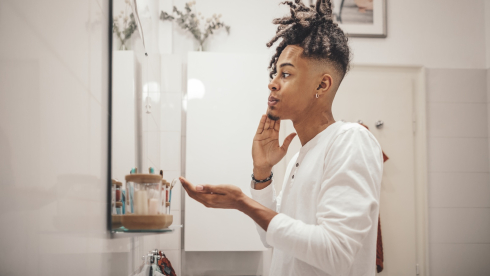By now you’ve heard the news that Kenyan actress Lupita Nyong’o won an Oscar for her performance in Steve McQueen’s epic drama 12 Years A Slave. And while I could almost feel sisters around the globe shouting in glee, some have already attempted to diminish Nyong’o’s historic win.
The argument? Her presence in the media is a result of a fetish; she’s only an “it” girl because she isn’t African-American; she ain’t really all that, folks are just pretending; she won because she played a slave; and my personal favorite, she’s only in the spotlight because of the White man.
Let’s be clear: Lupita Nyong’o is a star. Period.
Whether she goes on to have a career reminiscent of Meryl Streep, or if she fades into obscurity, this moment means something to us. And nobody can take that away.
Seventy-five years after Hattie McDaniel became the first Black woman to win an Academy Award in 1939, Lupita Nyong’o took home the trophy. In more than seven decades, only seven—yes, SEVEN—Black women have won in either the Best Actress or Best Supporting Actress categories, which should be considered a tragedy instead of an interesting trivia fact.
When Halle Berry won the Best Actress prize in 2002 we hoped it meant the playing field was finally tilting toward equality, but it did not. While Berry continued to rack up roles, other sisters, arguably more talented actresses, were shut out.
But why?
Surely Black women are just as capable of being the leading lady, the love interest, the international spy as their White counterparts (Berry’s assorted roles have proved this to be fact). But sisters were hardly given the chance. Though many of us hoped Halle’s win would trickle down to other actresses, her blackness—light skin, slight-framed—is the kind that has always been acceptable and celebrated both in the media and our community at large.
Which brings me back to Lupita. Reminiscent of sisters who have gone before her—Cicely Tyson, Grace Jones, Viola Davis, Alek Wek—Nyong’o’s presence on the world’s stage matters. Lupita’s kinky hair and sable skin and fearless fashion choices matter. Why? Because we rarely see Black women—not racially ambiguous/biracial women who identify as Black—front and center and celebrated by the world.
Two years after some wondered whether Davis’s short afro was “appropriate” for the red carpet, Nyong’o appeared and became a living, breathing, billboard for the beauty and versatility of short kinky hair. And while many try to reduce our love of Nyogo’o to “dark skin Black women looking for acceptance,” seeing someone who looks like she could be your sister, cousin, or good girlfriend matters to sisters all over the globe.













